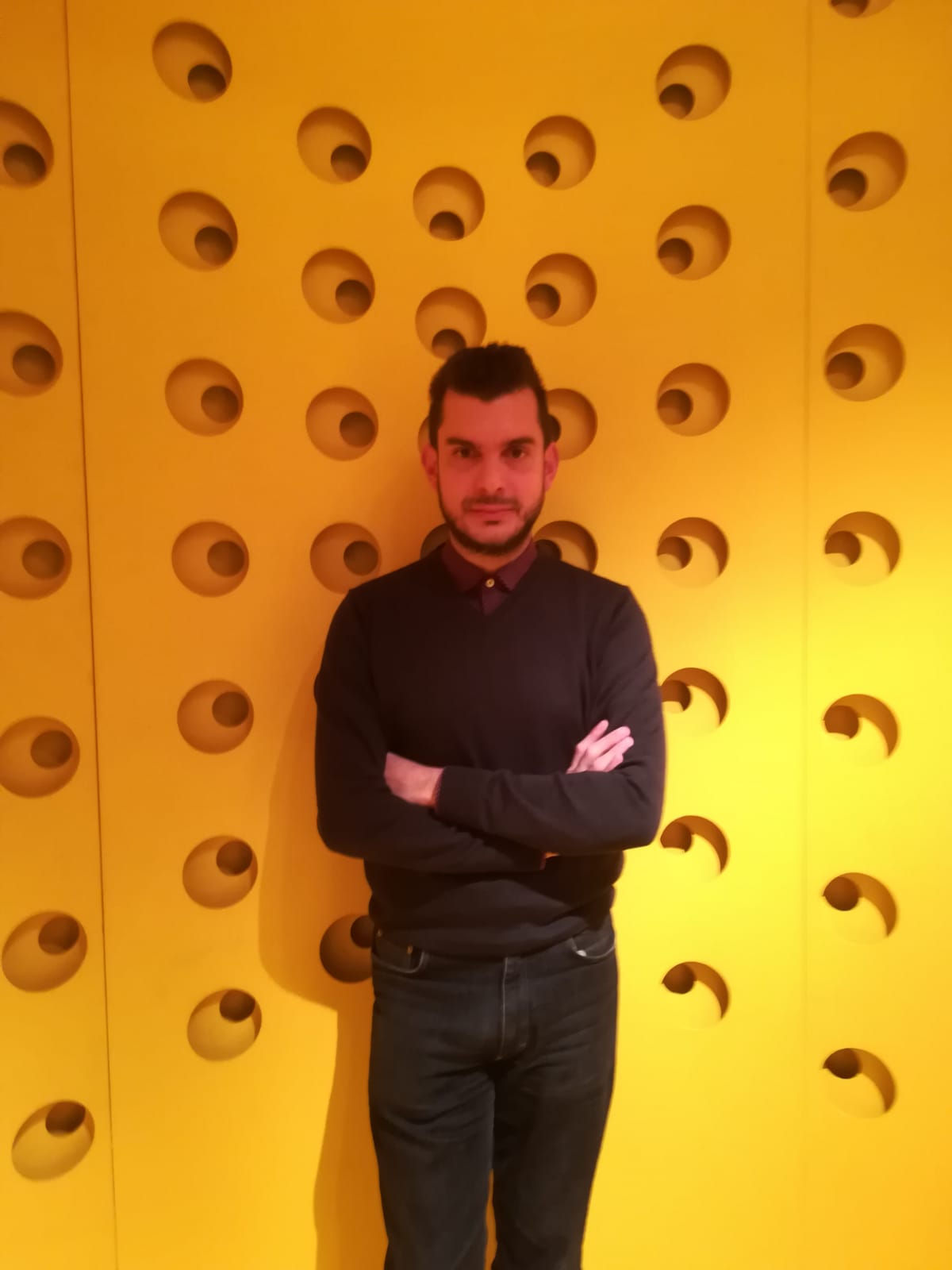Carla Sala from Treviso
How your way of working has changed?
I think that one of the most negative aspects of the evolution of the art system in recent years has been making the relationships between operators too hectic, with the risk of falling into superficiality and overshadowing the necessary scientific research and discussion activities that govern every curatorial project. During the lockdown days I managed to take the right time to study and update, finding a working method that, in his own process, presupposed error and the continuous undermining of one's consolidated certainties, perhaps opening up to the analytical tools offered by disciplines outside our sector to try to adopt a "lateral" look on the issues addressed.
Museums and galleries have reacted to the moment with digitalization and virtuality. What are your "strategies" for establishing new relationships?
This crisis has demonstrated how the digital offering of the Italian museum system as a whole was severely backwards. I am a great lover of cultural podcasts and when I drive to work I often listen to conferences or readings of contemporary novels, but in the first weeks of lockdown I perceived many contents as ephemeral, moved more by the narcissism of their authors than by a true desire for investigation where media as such was the master and not the content. This is why the conversations that we as the Fabbri Foundation have promoted on our social channels, on the occasion of Festival F4 / A photography idea, they wanted to be a little’ in contrast: we have contrasted short formats with insights into the work of the artists involved to create lasting content. The themes addressed with the various authors (among which Christian Fogarolli, Student, Irene Fenara, The Cool Couple and Emilio Vavarella) they wanted to be the pieces of a single choral reflection on the statute, the function and the social and political aspects of the contemporary image in anticipation of the release in autumn of a theoretical text that brings them together.
With which objects and spaces of your daily life are you interacting the most?
In the house in the province of Treviso where I have spent the last few months I am lucky enough to have a well-stocked library, consequently the "main" object that marked the days was the book. Especially in the first few weeks, I enjoyed browsing for hours through the catalogs of authors who have no connection with the projects in progress, moved by the pure pleasure of observing an image and scrutinizing it in a dilated time, almost as if it were to reveal unexpected epiphanies to the persistence of the gaze.
The other fundamental object – which puts me in a dichotomous state of mind compared to the first – is the computer used to write, record conversations, participate in talks and give university lectures and as the weeks go by, this and the other technological tools that connected me to the world, they have become necessary to the point of seeming like the objects of a new animistic cult; but I look forward to the time when I can recant this “wedding ring” and immerse myself again in the chaotic vortex of reality.
What you're missing? Your personal experience of "absence" and "lack".
While on the one hand the many readings and reflections have given me a meditative dimension, on the other hand I miss the direct perception of the work of art and its auratic nature; I have always thought that the enjoyment of culture is both a mental and physical-sensory factor, in the unity of these two aspects, it can lead to continuous discoveries.
Certainly the place I miss the most is Venice, a city where you can wander aimlessly, let yourself be guided by the small signs of its morphology that stratify different times and cultures. During night walks, when the crowds of tourists disappear, you can get lost among streets and fields moved by a multifaceted feeling that alternates freedom with slight bewilderment, quiet to excitement.
We are dealing with a new time and space. What are you discovering or rediscovering about yourself?
The desire to carry out small daily gestures, but essential, which are usually lost in the work routine. I spent a lot of time in the garden taking care of the plants and fascinatedly observing their mutation with the arrival of spring in a chromatic range that usually escapes our attention; I remembered how the rituals that mark our affections must be strenuously defended; I gave space to an omnivorous curiosity - at times rhapsodic and dispersive - which led me to explore a thousand questions; finally, I reflected on which projects and research to focus my future energies on.
Carlo Sala (Treviso, 1984), art critic, curator and teacher at the IUAV Master in Photography in Venice.
He is curator of the Francesco Fabbri Onlus Foundation for which he is responsible for the artistic direction of the F4 Festival / AN IDEA OF PHOTOGRAPHY, of which the tenth edition is underway, and the curatorship of the Francesco Fabbri Prize for Contemporary Arts. He is the artistic director of Photo Open Up – International Photography Festival promoted by the municipality of Padua. He cured, among others, exhibition projects for 12. International Architecture Exhibition, People meet in architecture, Venice Biennale, the MUFOCO | Museum of Contemporary Photography and the MART – museum of modern and contemporary art of Trento and Rovereto.
His essays and critical texts have appeared in various publications published by Allemandi, Marsilio, Mimesis, Bruno Mondandori, Silvana Editoriale and Skira.
www.fondazionefrancescofabbri.it
photopenup.com

